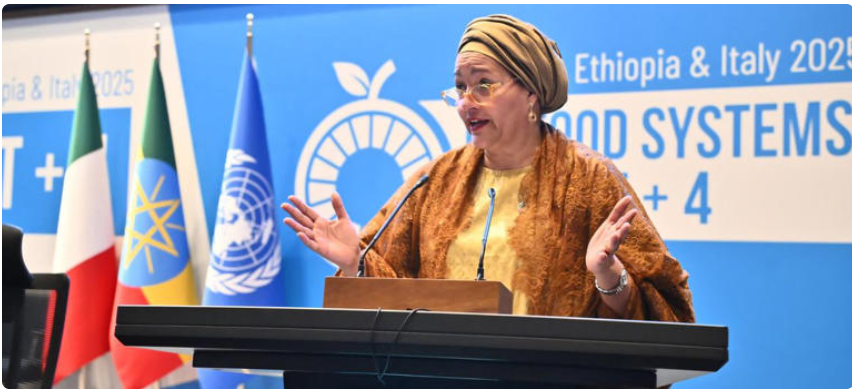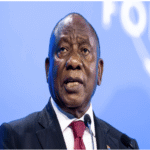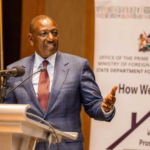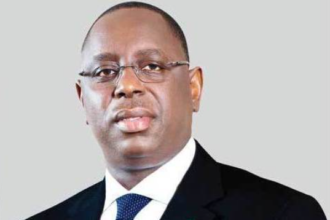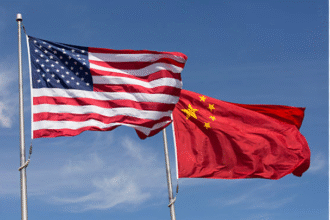By Peter Halima
ADDIS ABABA, Ethiopia – United Nations Deputy Secretary-General Amina Mohammed has issued a fervent call for global leaders to intensify efforts to transform food systems, describing them as “one of the greatest solutions” to achieving the Sustainable Development Goals (SDGs) by 2030.
Delivering her closing remarks at the UN Food Systems Summit +4 Stocktaking Moment (UNFSS+4) in Addis Ababa, co-hosted by Ethiopia and Italy, Mohammed acknowledged the growing momentum behind food systems transformation. However, she delivered a stark warning: with just five years remaining until the 2030 deadline, “hunger and malnutrition persist. Climate shocks, conflict, debt, and inequality are widening the cracks in our systems.”
“Too often food systems are seen as part of our challenges,” she stated. “When in fact, they can be one of the greatest solutions to deliver for people, planet, peace and prosperity.”
The UNFSS process, launched in 2021 amidst the global pandemic, aims to catalyze national and global action towards more inclusive, resilient, and sustainable food systems. The 2025 stocktake event in the Ethiopian capital brought together over 3,000 participants, including representatives from governments, civil society, Indigenous Peoples, youth, and the private sector, to assess progress and renew commitments.
Significant strides have been made, with more than 130 countries having developed National Pathways for food systems transformation, supported by UN agencies and development partners. Mohammed highlighted further progress, noting that “Food and agriculture are now part of the climate plans of 168 countries,” demonstrating their potential to reduce emissions and build resilience. Additionally, over 170 countries are implementing school meal programmes, which she hailed as “investments in children, our farmers, and the future.”
The Deputy UN Chief underscored the critical importance of inclusion, advocating for the empowerment of youth, Indigenous Peoples, women, and marginalized communities. She also urged donors and development banks to align their investments with national pathways to maximize impact.
The Summit, which commenced on July 27, also saw the launch of the State of Food Security and Nutrition in the World 2025 (SOFI) report. This crucial report revealed a modest decline in global hunger, yet highlighted a troubling rise in food insecurity in Africa and Western Asia. Jointly produced by FAO, IFAD, UNICEF, WFP, and WHO, the SOFI report detailed how persistent food price inflation has undermined access to healthy diets, particularly for low-income populations. Vulnerable groups, including women, children, and rural communities, remain disproportionately affected.
The SOFI report calls for urgent policy responses, including coherent fiscal and monetary policies to stabilize markets, open and resilient trade systems, targeted social protection for at-risk populations, and sustained investment in resilient agrifood systems. It served as a critical reminder that despite some progress, intensified international efforts are essential to ensure universal access to sufficient, safe, and nutritious food.
In a key side event during the Summit, Mohammed appealed for long-term, inclusive solutions to food insecurity in crisis-affected regions. She drew attention to the staggering human cost of acute malnutrition, revealing that over 37 million children under five are projected to face acute malnutrition this year, with nearly 10 million suffering from severe wasting, the deadliest form of undernutrition.
“Communities are trapped in relentless cycles of hardship,” she lamented, while also praising the courage displayed on the ground. She urged governments and partners to move beyond short-term interventions and embrace transformative, locally driven solutions, commending countries that embed resilience into national strategies and combine traditional knowledge with science to rebuild food systems.
Concluding her remarks, Mohammed called for a strengthening of multilateralism and a concerted effort to unlock opportunities “for and with those who need it most.”
“Our movement has shown what is possible when we work together in deliberate ways across sectors, stakeholders, and countries with a shared purpose,” she affirmed, urging governments and people worldwide to build on existing accomplishments and continue working together for peace and the realization of the 2030 Agenda. “Let’s continue to lead the way – together.”


